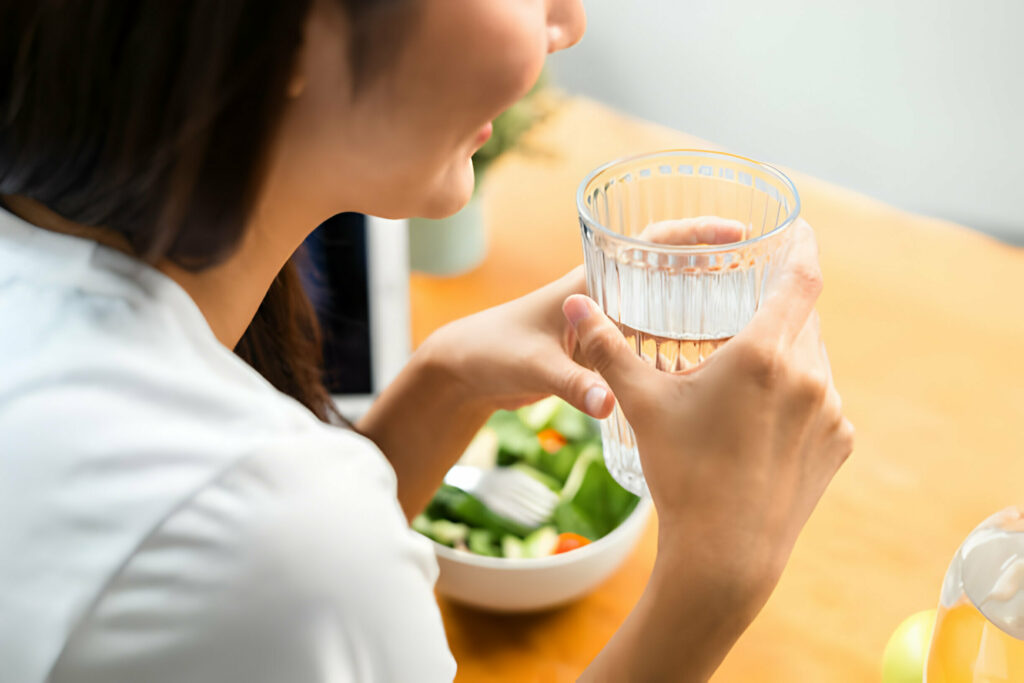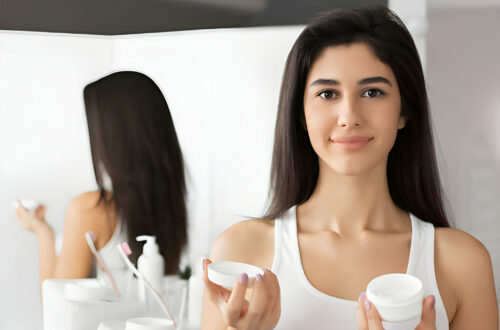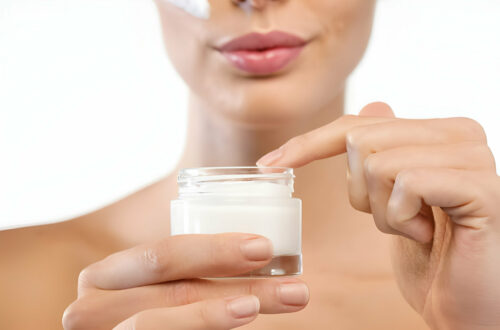Understanding Antioxidants for Skin Health
Antioxidants can be beneficial for your skin, as they help prevent or slow down aging and cell damage. Incorporating antioxidants into your glowing skin care routine can make a significant difference. You can find antioxidants in the food you eat, supplements you take, and skin care products you use.
Many skincare products contain antioxidants, like retinoids, vitamin C, or vitamin E. The American Academy of Dermatology Association (AAD) recommends these products for some people but advises caution for others. Experts suggest that maintaining a healthy and diverse diet, as part of a holistic skin care approach, can be a cost-effective way to take care of your skin and enhance its condition.
This article explains antioxidants, their role, and the advantages they offer. It describes how they interact with your skin and lists sources of antioxidants in food, supplements, and skincare products. It also guides on choosing the right skincare products and warns about potential downsides.

What Are Antioxidants? Antioxidants are substances that can prevent or slow down certain types of cell damage by neutralizing harmful free radicals and reducing oxidative stress.
A 2018 article explains that the body encounters oxidative stress through its metabolic processes and external sources like pollution, smoking, and alcohol.
Oxidative stress and free radicals are linked to aging and diseases such as cardiovascular disease, diabetes, neurodegenerative conditions, and cancer.
Antioxidants can be either artificial or naturally occurring. They can be found in fruits, vegetables, and supplements containing vitamins and minerals. Natural products for skin care often include these antioxidants. Some, like glutathione, are produced by your body, while others come from your diet.
Common antioxidants include vitamins A, C, and E, selenium, zinc, carotenoids, flavonoids, and glutathione. Peptides in skin care are also gaining attention for their potential antioxidant properties. Research shows that scientists are still unraveling the full extent of how antioxidants function, as they can have both positive and negative effects.
How Antioxidants Benefit Your Skin
Antioxidants, as per a 2021 review, are superheroes for your skin. They shield your skin from the harmful effects of UV radiation, which can make your skin age faster.

The trick, according to researchers, is to give your skin the nutrients it craves both inside and out. You do this by eating a diverse diet that includes essential antioxidants like carotenoids, which your skin adores. Plus, zinc is like a construction worker for new skin cells, selenium keeps wrinkles at bay, and vitamin E acts like a shield against skin cancer.
So, what’s in it for your skin? Antioxidants, trusted sources say, can:
- Prevent DNA damage from UV light.
- Keep your skin hydrated.
- Boost collagen and elastin production.
- Make wrinkles and pigmentation less noticeable.
- Support the skin’s healing powers.
- Tame inflammation.
- Give your skin a softer touch.
Antioxidants aren’t just skin’s allies; they can also help stop certain skin issues. For instance, a 2021 review of 20 studies found that folks with skin conditions like vitiligo, atopic dermatitis, and acne had lower levels of vitamin E. So, vitamin E might be a game-changer for these skin problems, but more research is needed.
In 2022, another review pointed out that antioxidants could step in and fight against oxidative stress in psoriasis. It seems like antioxidants are always on the side of your skin!

Top Antioxidants for Healthy Skin
When it comes to keeping your skin in tip-top shape, a reliable review points to several star antioxidants:
- Vitamin A
- Vitamin E
- Vitamin C
- Selenium
- Zinc
- Copper
- Carotenoids, like beta carotene, lutein, and lycopene
- Polyphenols, plant-based wonders found in:
- Silymarin (from milk thistle)
- Epicatechin (from green tea)
- Genistein (from soybeans)
- Curcumin (from turmeric)
- Bakuchiol (from the Psoraleacorylifolia plant, a traditional medicine favorite)
- Resveratrol (found in grape seeds)
Now, the review makes it clear that a balanced diet is key, but here’s the twist: some of these antioxidants are also available as supplements or in skincare products.
Take vitamin C, for instance. It’s a popular player in skincare products. According to a 2017 review, vitamin C is the MVP of antioxidants in your skin. Even if you load up on vitamin C pills, only a fraction makes it to your skin to do the job.
That’s why they recommend giving topical vitamin C products a try. These can have superpowers against aging, pigmentation, and sun damage. Plus, they help keep your vitamin E levels in check. Your skin will thank you!

Choosing the Right Skin Care Products
The AAD, which knows its stuff, suggests a simple but essential step for selecting skin care products: first, figure out your skin type. Your skin might fall into one of these categories:
- Sensitive: It gets all bothered, stinging, or burning after using stuff.
- Normal: It’s clear, trouble-free, and not sensitive.
- Dry: Think flakes, itchiness, or roughness.
- Oily: It’s like a shiny, greasy situation.
- Combination: Some parts are desert-dry, while others are oil-rich.
Understanding your skin type is like your secret weapon. It helps you pick the right skincare routine and products that your skin will love.
Here’s another nugget of wisdom from the AAD: Sunscreen is your skin’s BFF. Every day, slap on some SPF 30 or higher on the bits of skin not hiding under clothes. If you’re in a hurry, go for a moisturizer that has SPF built-in.
Also, be kind to your skin and steer clear of products that make it cranky.
Now, let’s talk about retinoids. They’re like vitamin A magic. Retinol, a star player in skin care products, can even out your skin tone, fix pigmentation issues, and give your skin a smoother texture. But the AAD has some friendly advice: If you’ve got sensitive or dry skin, retinoids might not be your bestie. If you’re pregnant, definitely avoid them. And if you’re dealing with hormonal acne, it’s a good idea to chat with a dermatologist first.
Remember, if you’re on Team Retinoid, you’ve got to be on Team Sunscreen, too. Retinoids make your skin more sun-sensitive.
Now, let’s talk about antioxidants. In 2017, a wise study told us that antioxidants are golden for your skin, whether you apply them or swallow them. But don’t go overboard with huge doses for a super long time without asking a doctor. That can lead to some not-so-great effects.
And, you know, despite all those antioxidant skin care products out there, the proof of how they affect your skin cells can be a bit fuzzy. So, it’s a bit of a mixed bag, but they’re still worth considering.

Antioxidants in Your Diet
Antioxidants are like little heroes found in lots of foods. Some of the best sources of these heroes are:
- Fruits, like pomegranates, apples, lemons, and dried fruits.
- Veggies, such as kale, broccoli, chilis, olives, beets, and peppers.
- Berries, like gooseberries, bilberries, blackberries, and blueberries.
- Drinks, like coffee, green tea, and red wine.
- Tasty treats like cocoa and dark chocolate.
- Even your kitchen spice rack has some!
When to Talk to a Doctor
If you’ve got skin worries, don’t hesitate to chat with a doctor or a skin expert, also known as a dermatologist. They’ve got the answers you need.
And if you’re thinking about adding antioxidant supplements to your routine, it’s a good idea to give your dog a heads-up. Some supplements can mix funny with medications, so better be safe.
FAQ Time
Can Antioxidants Make Your Skin Clearer? Well, we know there’s a link between antioxidants and skin issues like acne and seborrheic dermatitis, but we’re still figuring out how much they help.
Which Antioxidant Packs the Biggest Punch? Antioxidants are like a team of superheroes. But if you’re looking for the leader of the pack, it’s vitamin C. It’s everywhere in your skin, keeping things in check. For some specific skin conditions like acne, retinoids can also be a game-changer.
In a Nutshell
Your skin has its squad of antioxidants, with vitamin C as the captain. They’re your shield against skin damage, and aging, and can even make your skin look better. You can get them from your meals or give your skin a treat with skincare products.
By the way, retinoids are superstars in skincare, but they’re not for everyone. They might make some folks as dry as the desert. And don’t forget, if you’re on Team Retinoid, you’ve got to wear sunscreen. If you’re expecting a little one, skip the retinoids altogether.
Feeling puzzled about your skin? A dermatologist can help you solve the mystery.





